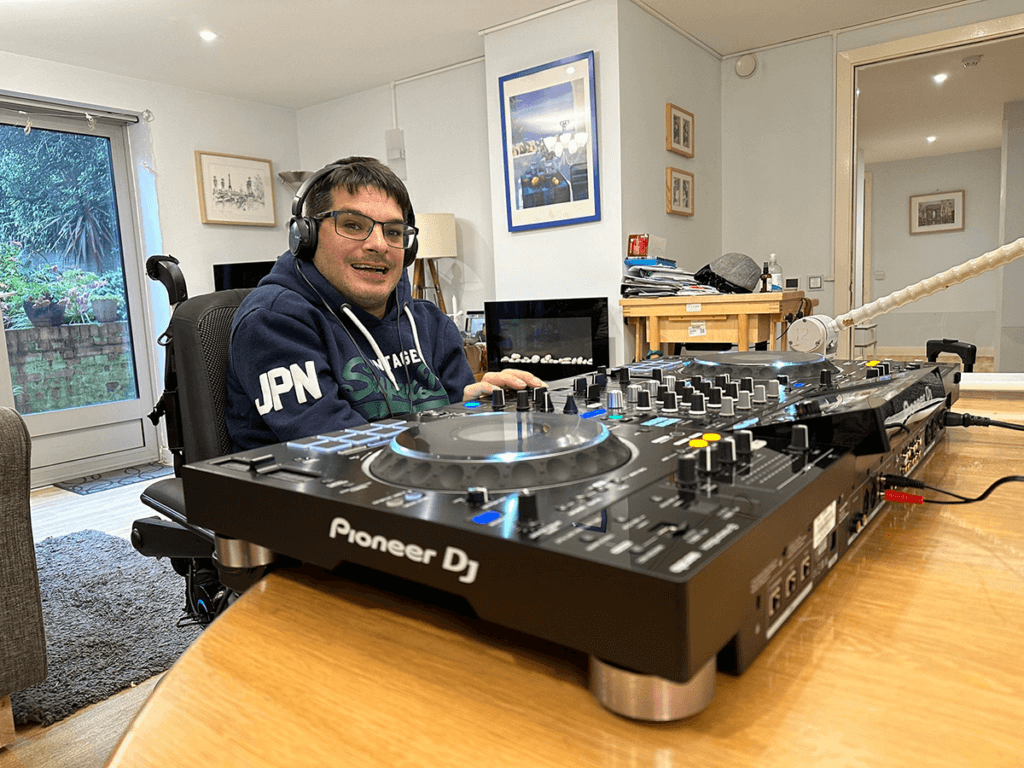
The dedication of Professor Mary McCarron and her team to inclusive research which brings about meaningful change for people with intellectual disabilities was evident throughout her CEDAR seminar series talk about IDS-TILDA.
IDS-TILDA, a programme of research led by Professor McCarron at Trinity College Dublin, is the Intellectual Disability Supplement of the Irish Longitudinal Study on Aging. Now preparing for its fifth wave of data collection, IDS-TILDA comprises an impressive breadth and depth of vital research into the health, healthcare and wellbeing of adults with intellectual disabilities (ID) living in Ireland who are aged 40 and over.
Introduction to IDS-TILDA
Professor McCarron began the seminar by explaining the rationale for the project’s establishment in 2008. She highlighted the recognised health inequalities, and in particular the shorter average lifespan, of people with ID, relative to those without – a stark finding that has been repeatedly reported in research internationally (O’Leary et al., 2018). Yet people with ID have often been excluded from participating in mainstream health research (see Spaul et al., 2020) and, as a result, in many areas there is limited evidence to guide those seeking to advocate for and better meet their health needs.
Professor McCarron highlighted that prior to IDS-TILDA, none of the many international cohort studies of ageing had deliberately included a group of participants with ID. With the launch of TILDA – an Irish longitudinal study of healthy aging in the general population of over-50s – Professor McCarron and her team recognised an opportunity, developing this unique supplementary study which allowed comparisons of the health of people aging with ID to those without. Throughout the seminar, Professor McCarron demonstrated the importance of this by presenting findings in the context of those from the general population, often illustrating substantial disparities.
One barrier to the inclusion of people with ID in large-scale studies of health and wellbeing can be the need to adapt data collection methods to make them meaningful and accessible to people with varying levels of intellectual ability (e.g., Nicolaidis et al., 2015). Professor McCarron explained that, alongside adaptations to some of the measures used in the mainstream TILDA study, working in close partnership with people with ID to train skilled specialist interviewers was crucial to successful data collection. These partnerships additionally permitted researchers to understand and include unique areas of study of importance to this population. Professor McCarron also attributed IDS-TILDA’s high response and retention rates to its attentive engagement with people with ID and their supporters throughout, and has published a paper sharing such strategies for the benefit of other researchers (McCarron et al., 2022).
Professor McCarron outlined the value that the IDS-TILDA project had during the covid-19 pandemic, allowing the team to collect and share evidence about the impact of the pandemic upon older adults with ID in both 2020 and 2021. This proved a vital resource for guiding the Irish national response to covid-19 for people with ID, who internationally were profoundly impacted both in terms of clinical risk, and by the necessary restrictions.
Professor McCarron noted that during the hour-long seminar she had time to present only a small selection of findings from the diverse areas addressed by IDS-TILDA, which covers domains of physical health, psychological health, cognitive health, behavioural wellbeing, healthcare and social wellbeing. Those she did present were often concerning and carried clear implications, not least for the practice of healthcare professionals such as myself.
Constipation
Professor McCarron began with data about the prevalence of certain health conditions among the participants, in particular highlighting important findings relating to constipation. Unrecognised constipation can cause chronic discomfort and distress, and more serious consequences in some cases. The finding that chronic constipation was known to affect over 30% of those aged 40–50 – and higher proportions of older participants – underlines the importance of routinely considering whether those we support might be suffering with constipation. This is especially the case for those with reduced mobility and higher levels of cognitive impairment; the IDS-TILDA data indicated that these factors (rather than age) were each associated with a greater risk of constipation. Professor McCarron also highlighted the high levels of laxative use in this group, speaking to the importance of promoting non-pharmacological approaches to bowel health (which might include increased hydration, exercise, and dietary changes).
Oral Health
Professor McCarron presented findings relating to participants’ oral health, whereby over a quarter of respondents reported having no teeth, compared to only 17% in the general TILDA study (whose participants were all over 50, rather than over 40 as in IDS-TILDA). Moreover, of those with no teeth, over two thirds did not have any dentures – which was the case in only 5% of those in the general population without teeth. Professor McCarron also highlighted that relatively poor dental health outcomes were found despite participants widely reporting regular visits to their dentist, and daily tooth-brushing. Specialist dentist Dr Phadraig, leading the oral health arm, has launched a campaign and accessible website in direct response to these findings, to help people with ID and their supporters with effective tooth-brushing.
Bone Health
Professor McCarron subsequently shared some concerning findings about participants’ bone health. She explained that during wave 2 of IDS-TILDA, as in the general TILDA study, participants were invited for a bone density scan. Of almost 600 people with ID who accepted, over 40% were found to have osteoporosis, with a further 33% having reduced bone density (osteopenia) – yet fewer than 15% had a doctor’s diagnosis of osteoporosis. This disparity was even wider among men, 90% of whom showed evidence of poor bone health while only 6% had an osteoporosis diagnosis. This is another area where the IDS-TILDA findings call for careful consideration to the possibility of undetected health issues in those with ID, and of strategies for prevention.
The data can also help to guide such considerations, demonstrating increased risk for those with more severe ID; those with mobility difficulties; and those using proton pump inhibitors (a type of medication to reduce gastric acid, which is commonly prescribed to people with ID). As in the dental health arm, the IDS-TILDA team have not stopped there – the lead researcher Dr Burke has created an online health education programme for people with ID, which includes promotion of bone health.
Polypharmacy
Prof McCarron presented data regarding polypharmacy, defined here as regular use of 5 or more medications; polypharmacy increases the risk of side effects and drug interactions. Though more common among all older people, Prof McCarron outlined that polypharmacy was reported in only 27% of the general population of over-54s, compared with 72% of IDS-TILDA participants aged 48 and over.
Epilepsy is much more prevalent among people with ID than those without, and correspondingly anti-epileptic medications were among the most commonly used medications – but the most frequently reported medication class was anti-psychotics, which were taken by over 40% of participants. Concerns about the over-prescription of anti-psychotics to people with ID are well documented, but this figure was alarming nevertheless; anti-psychotics have substantial side effect profiles and require careful health monitoring. Besides anti-psychotics and anti-epileptics, the most frequently used classes of medication were laxatives and analgesics (pain relief); Prof McCarron contrasted this with the general population, whose medication use most commonly comprised agents to protect cardiovascular health.
Dementia
Moving to the IDS-TILDA domain concerning dementia – which is known to particularly affect people with Down syndrome – Prof McCarron shared that the average age of dementia diagnosis was found to be over ten years younger in people with Down syndrome (55) than in those with other causes of ID (66). Prof McCarron highlighted a key concern being that almost half of the participants with Down syndrome without a dementia diagnosis had never been assessed for dementia, despite the high proportion of this group that the condition affects. Requiring detailed understanding of an individual’s abilities in order to recognise significant changes, dementia assessment and timely diagnosis is vital to ensuring that appropriate support can be planned and delivered when it is needed.
Finding that this key input had been unavailable to so many, Professor McCarron coordinated a remarkable response, establishing a national specialist memory service providing diagnostic and post-diagnostic support for people with ID and their carers. This initiative, which has since become a permanently funded service with satellite clinics around Ireland, could serve as a wonderful example to national strategies elsewhere for supporting people with ID and dementia.
Professor McCarron played a short film showing its impact on the experiences of families and individuals with ID, who can now be confident of receiving coordinated and holistic dementia care from an expert team.
Professor McCarron explained that the IDS-TILDA programme of dementia research concurrently remains in full swing. Led by clinical psychologist Dr McGlinchey, projects are underway to investigate early biomarkers (biological signs that can be identified through testing) of dementia in people with Down syndrome; to validate diagnostic instruments; and to develop vital guidelines for post-diagnostic support.
Social Factors
The scope of IDS-TILDA extends to examining social factors which can impact upon health and wellbeing. Professor McCarron presented data concerning technology usage, occupations, friendships and regular social contact – the latter being less than half as common in IDS-TILDA participants than in those without ID.
Since an array of factors were found to correspond to social inclusion, Prof McCarron highlighted the importance of person-specific approaches to improving social wellbeing. Professor McCarron noted additional areas being addressed by IDS-TILDA, including a family caregiving arm and a study into causes of death, each of which will undoubtedly provide further vital insights. She ended by looking to the future, with the forthcoming wave 5 of IDS-TILDA not only continuing to contribute key evidence regarding the health and wellbeing of people aging with ID, but also focusing on ongoing impacts of covid-19, as well as on frailty for this population.
Professor McCarron’s inspiring seminar comprised not only a set of crucial research results, but a form of advocacy for the rights of those with ID to enjoy and expect the same good health in aging as anyone else. The success of Professor McCarron’s work on IDS-TILDA is testament to the value of researching in partnership with people with ID, and a remarkable example of how evidence of health inequities can be translated into real change to address them.
Find out more
For more information about IDS-TILDA, visit the website where you can find all the IDS-TILDA reports and a list of academic publications deriving from the research, as well as videos, information and educational resources.
Note: The term ‘intellectual disability’ is used throughout this review; this is the Irish and international equivalent of the term ‘learning disability’ which is commonly used in the UK.









